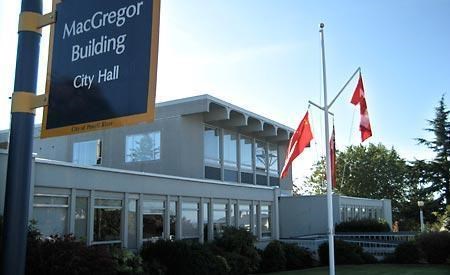City of Powell River Council has voted to halve the time it will take to remove the flat tax from the city’s tax rolls.
At its recent Thursday, March 5, meeting, council voted to hasten the reduction of the flat tax, which was established at a five per cent annual decrease of the 2010 rate per year. At its current pace, the flat tax would not be retired until 2030.
Council, with Mayor Dave Formosa opposed, accelerated the pay-down to 10 per cent per year from the 2010 rate, meaning that if that rate is continued, Powell River will be rid of the flat tax in seven years.
In 2010, the flat tax rate assessed to all Powell River residential properties with improvements was $479, and for raw land, it was $124.
Councillor Russell Brewer told the council meeting that the matter had been referred from the Thursday, February 26, finance committee meeting, where various reductions to the flat tax were discussed.
Brewer said he wanted to amend the recommendation before council that evening so that the flat tax for the 2015 residential property taxes be set at 70 per cent of the 2010 rate.
Brewer said the recommended motion before council was that the flat tax for the 2015 residential property taxes be set at 10 per cent of the 2010 rate.
“What we discussed was reducing it by 10 per cent,” he said. “If we set it at 10 per cent of the 2010 rate, we would drop the flat tax way down to $47 and that wasn’t the intent of our discussion.
“The intent was to reduce it by 10 per cent, which brings it from 80 per cent to 70 per cent of the 2010 rate.”
Councillor Jim Palm said there was an initial suggestion of reducing the flat tax by 25 per cent at the finance committee meeting, which he wouldn’t have supported if he’d been able to attend. He said, however, a compromise has been made at a reduction of 10 per cent and he could live with the amendment.
Palm said reducing the flat tax would hit people who are already paying high taxes. He said he has spoken to realtors who have indicated that people are moving from the city to the regional district because of lower taxation.
Councillor Rob Southcott said he does not support the flat tax and would like to abolish it immediately. However, in deference to sudden change, he’d like to go back to Councillor Maggie Hathaway’s motion at the finance committee to reduce it by 25 per cent per year from the point the city is at so it is diminished more quickly.
Councillor Karen Skadsheim said it appears there are 20 properties that would have a significant increase and 5,000 properties that would have a minor increase, or a decrease.
“There are 5,000 properties that would benefit so it makes a fairer taxation level,” she said.
Formosa said he had concerns about tax room for some higher-end properties, given that there are some significant capital projects, such as the library, a liquid waste treatment plant and a new fire hall on the capital expenditure horizon. The compounding taxes created by these projects on some of the higher-assessed properties in Powell River could result in some very high taxes.
Shehzad Somji, the city’s chief financial officer, said the changes to the flat tax would be revenue neutral. The city would receive the same amount of money from taxation. It is just that the apportionment of the taxes from the displacement would result in shifting taxation amounts based on assessments.
During the February 26 finance committee meeting, Somji outlined the dynamic of Powell River properties based on assessment classes. He said there was taxation on 5,417 properties on Powell River’s tax roll. Based on the breakdown of property values, properties valued at less than $230,000 would receive a “bit of a break,” on flat tax reduction and there would be increases for higher-value properties.
After the vote, Formosa thanked council for reaching a good compromise.



